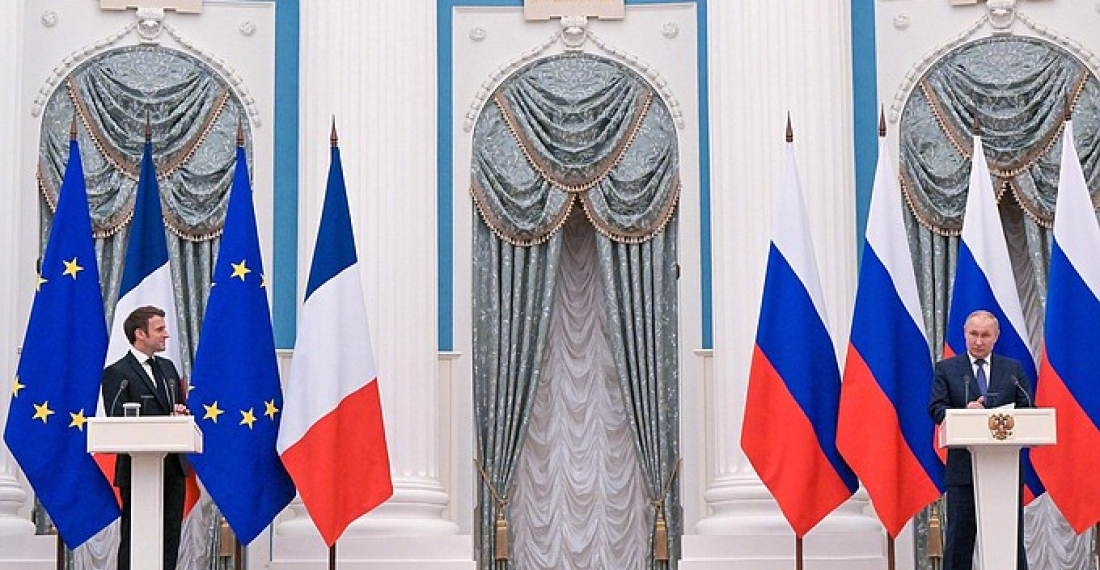Monday was a day of high diplomacy as leaders scrambled to try to avoid war in Europe. Nonetheless western countries continue to assess that the prospect of a Russian invasion of Ukraine remains real, and could happen at any moment. The Pentagon said on Monday (7 February) that Russia continued its military buildup on the border with Ukraine over the weekend.
Also on Monday, French President Emmanuel Macron met with President Vladimir Putin in Moscow, while German Chancellor Olaf Scholz was in Washington to meet US President Joe Biden.
Russian leader Vladimir Putin said after the talks Monday with Macron that Moscow would do its best to find compromises in the crisis with the West over Ukraine. "As far as we are concerned, we will do everything to find compromises that suit everyone," Putin said, adding that there would be "no winners" if war breaks out on the European continent.
The Russian leader also stressed that NATO and the United States had ignored Moscow's demand of security guarantees including NATO's non-expansion and would press them for a firm commitment.
"I don't think that our dialogue is over," he said, adding that Russia would soon send a response to NATO and Washington. He also insisted that Ukrainian authorities should respect Western-brokered Minsk agreements on the country's separatist conflict. "I believe that there's simply no alternative," Putin said.
French President Emmanuel Macron said he had made proposals of “concrete security guarantees” to Russian leader Vladimir Putin at Monday’s talks.
“President Putin assured me of his readiness to engage in this sense and his desire to maintain stability and the territorial integrity of Ukraine,” Macron said after nearly five hours of talks with Putin in the Kremlin.
Russian President Vladimir Putin described Monday’s talks with Macron as useful, substantive and business-like, and said that some of Macron’s ideas could form a basis for further joint steps.
In a joint news conference after the talks, Putin said that a number of Macron’s ideas concerning security were realistic and that the two would talk again once Macron had travelled to Kyiv to meet Ukraine’s leadership.
US President Joe Biden promised Monday to “bring an end” to the disputed Nord Stream 2 pipeline built to bring Russian gas to Europe, if Moscow invades neighboring Ukraine.
“If Russia invades – that means tanks or troops crossing the border of Ukraine, again – then there will be no longer a Nord Stream 2,” Biden told a joint news conference with Germany’s Chancellor Olaf Scholz.
“I promise you,” Biden said, “we will bring an end to it.” He declined to elaborate on how he could make such a promise when Germany controls the pipeline.
Scholz said Germany and the US have been working closely together to ensure sanctions can be imposed quickly on Russia in the event of a fresh attack on Ukraine. When pressed on Nord Stream 2, he said some details from his discussion with Biden could not be made public.
Biden downplayed concerns that Berlin is not fully engaged with US-led efforts to push back against Russian military pressure on Ukraine.
“Germany’s completely reliable – completely, totally, thoroughly reliable. I have no doubt about Germany at all,” Biden said, speaking next to Chancellor Olaf Scholz at the White House.
Scholz said that “acting together, we are absolutely united, and we will not (be) taking different steps, we will do the same steps and they will be very, very hard to Russia".






